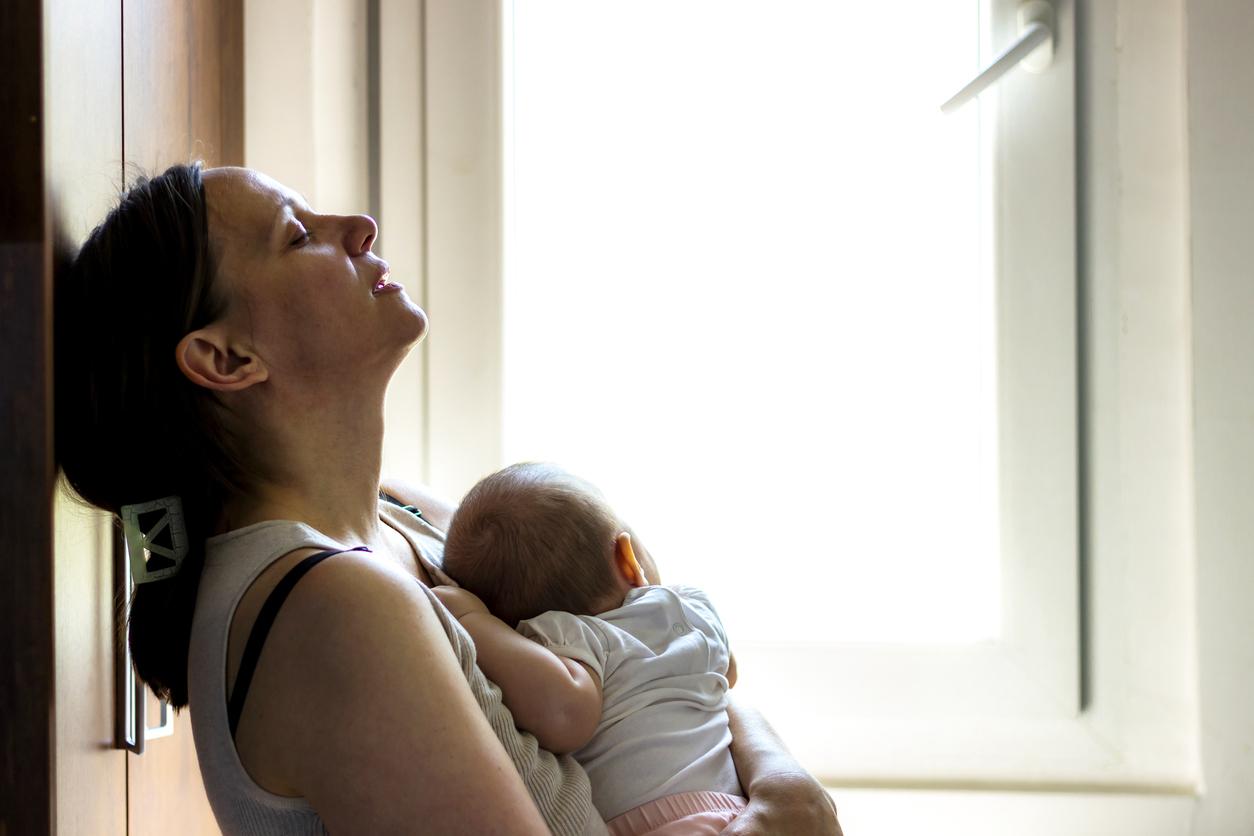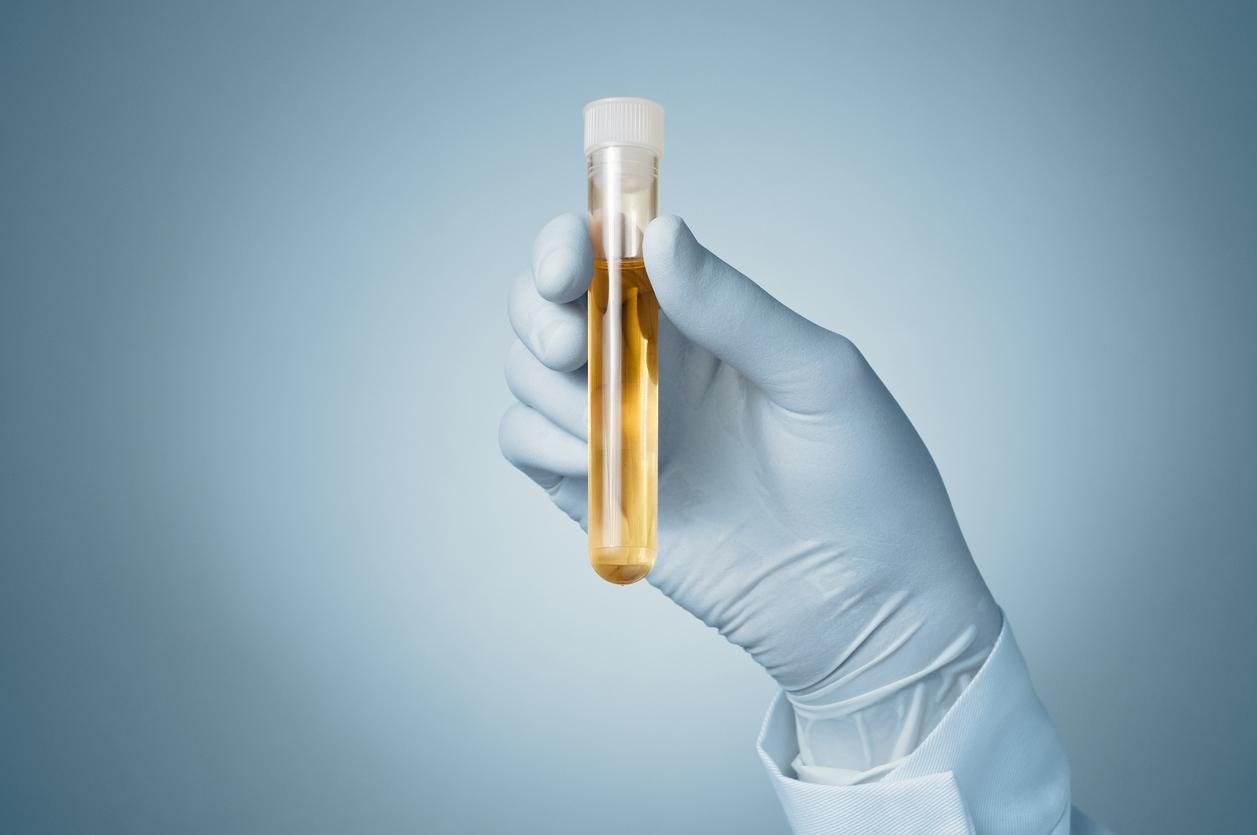Various symptoms can appear in the weeks following delivery, this period called postpartum. While some are normal, others require medical advice.

- It is normal to feel some pain during the postpartum period, but if it persists, you should consult.
- They can be a sign of an infection, mastitis, preeclampsia or even a pulmonary embolism.
- Long-lasting sadness can also indicate postpartum depression.
Postpartum lasts six weeks according to doctors, in reality, certain symptoms can last three years. During this period, it is normal to feel some pain or fatigue. But signs should be taken seriously. This is the message from Salena Zanotti, obstetrician-gynecologist. For the Cleveland Clinicin the United States, it lists ten worrying symptoms.
1 – Very heavy bleeding
Postpartum bleeding is normal, according to the specialist. “Vaginal discharge that occurs after childbirth is called lochia and can be quite heavy for the first few days., she adds. They correspond to remains of blood, tissues and other materials. If the discharge is still heavy after several days or corresponds to large blood clots, it is important to consult a doctor as this may be a sign of postpartum hemorrhage.
2 – Severe abdominal cramps
“During pregnancy, your uterus expandsexplains Salena Zanotti. After giving birth, it begins to return to its normal size (…) and cramps are common.”In some people, they are as painful as a contraction.”Cramps that come and go and last no more than about five minutes are normal, she says. But if you experience severe or constant pain, it’s time to contact your doctor.” They may indicate postpartum endometritis, which is a bacterial infection of the lining of the uterus.
3 – Severe headaches
A persistent headache after childbirth should cause vigilance: it may be a symptom of preeclampsia. This form of high blood pressure can occur during but also after pregnancy. According to Dr. Zanotti, it can also manifest as vision problems and swelling of the face or limbs. This postpartum pathology is rare, but can be very serious.
4. Complications related to tears or incisions
Sometimes childbirth requires incisions to make it easier for the baby to come out. They usually heal without problem, but if you have a fever or notice a foul-smelling discharge or feel pain, you should see a doctor as this may be a sign of an infection.
5 – Incontinence, a sign to watch out for
Urinary leakage at the end of pregnancy and during the first weeks after delivery is normal. Pelvic floor exercises can help stop leaks. “But some people may have leaky gut after giving birth, particularly if they have had a significant tear.”, underlines the specialist. She specifies that if you leak urine, gas or stools, or if you feel pelvic floor weakness, you should speak to a healthcare professional to receive appropriate care.
6 – Burns when urinating
“It is normal to feel some discomfort urinating after giving birth, develops Dr. Zanotti. It may sting a little when you pee, especially if you’ve had stitches.”A week after delivery, these pains should subside. Some people feel them longer, and this may indicate the presence of a urinary tract infection.”Talk to your doctor if you feel burning when you pee, feel strong pressure or pain when you urinate, or need to go frequently.”
7 – Leg pain
“During pregnancy, your blood volume increases in order to care for the developing fetus, she explains. After giving birth, your blood may clot more easily, which can put you at higher risk of developing blood clots in your veins, which can travel throughout your body and be very serious. One of the most likely places to be affected is the legs. “Signs of a blood clot in the leg, also called deep vein thrombosis, include pain in the leg, as well as redness, swelling, or a feeling of warmth in your legs.”
8 – Chest pain or difficulty breathing
These blood clots can circulate in the body, reach the lungs and block blood flow to them: this is a pulmonary embolism, a very serious health problem. “The symptoms of pulmonary embolism are shortness of breath, chest pain and cough, indicates this specialist. You may also cough up bloody mucus.” These symptoms require urgent consultation.
9. Breast pain or burning
Engorged breasts and discomfort are normal, especially in the first weeks after delivery, warns this specialist. “If you are breastfeeding and experience symptoms like sore, burning, hot to the touch, or red streaked breasts, this may be a sign of mastitis.notes the gynecologist. Mastitis is an infection that can occur if your milk ducts become blocked.” It requires treatment with antibiotics.
10. Persistent sadness or dark thoughts
“About 70 to 80% of women report feelings of sadness or crying after giving birth, explains Dr. Zanotti. It’s called the baby blues.”This is a normal reaction to fatigue and”hormonal roller coaster” caused by childbirth. But if these symptoms persist for several weeks after giving birth, it may mean you have postpartum depression. “If you constantly feel overwhelmed and unable to care for yourself or your baby, these are signs of postpartum depression and you should seek help, both for your health and that of your baby.”

















